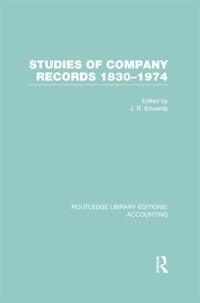Question
Family Finance Co. (FFC), a publicly traded commercial bank located in South Carolina, has a December 31 year-end. FFC invests in a variety of securities
Family Finance Co. (FFC), a publicly traded commercial bank located in South Carolina, has a December 31 year-end. FFC invests in a variety of securities to enhance returns, managing its investment portfolio in an effort to earn returns greater than interest paid on bank deposits and other liabilities. As of December 31, 2020, FFCs investments primarily consist of (1) mortgage-backed securities (MBS), (2) equity securities of nonpublic companies, and (3) plain vanilla interest rate swaps that FFC uses to hedge its exposure to variable interest rates on its corporate debt. All cash payments made under these instruments are in U.S. dollars.
FFC accounts for the MBS and equity securities at fair value with changes in fair value reflected in earnings. Because FFC uses the interest rate swap in a cash-flow hedge, it measures the derivative at fair value, presenting the fair value change in OCI.
Facts related to specific securities and derivatives owned by FFC are described below.
Instrument 1 Mortgage-Backed Security
On September 1, 2020, FFC invested in an S&P AA-rated tranche of a privately issued pass-through MBS (i.e., nonagency) with a stated maturity of 30 years. The underlying collateral for the MBS is subprime mortgages on residential properties.
On September 30, 2020, FFC measured the fair value of the MBS using a market approach valuation technique that was based on inputs that did not require a significant adjustment. These inputs included quoted prices in active markets for similar MBSs with insignificant adjustments for differences between the MBS held by FFC and similar securities.
In Q4 2020, the market for the MBS became increasingly volatile with some periods of declining activity. The volatility was evidenced through fluctuating bid-ask spreads. However, FFC concluded that (1) there were observable transactions for the MBS or similar MBSs and (2) the prices for those transactions were current and therefore did not reduce their relevance to the fair value measurement. On the basis of the evidence, FFC determined that the observed transactions were orderly and that the adjustments to the observed transactions required to measure fair value for its MBS are insignificant on the measurement date.
As an alternative, FFC considered using a theoretical income-approach pricing model. Such a pricing model takes into account the relationship between interest rates and loan prepayment speeds. Mortgage prepayments are usually made because either a home is sold or the homeowner is refinancing to a new mortgage, presumably with a lower interest rate. Since these two sources of risk (interest rate and prepayment) are linked, this relationship must be factored into the model. FFC recognized that there would be substantial complexity in using an appropriate mathematical model for valuing its MBS.
FFC measured the fair value for its MBS by using only the observed market transactions referenced above because the alternative pricing model was inherently complex and would require significant assumptions.
Required:
Determine the appropriate classification in the fair value hierarchy for each of the instruments referenced in the case as of December 31, 2020. Provide support for your classification. Cite appropriate authoritative guidance where necessary.
Step by Step Solution
There are 3 Steps involved in it
Step: 1

Get Instant Access to Expert-Tailored Solutions
See step-by-step solutions with expert insights and AI powered tools for academic success
Step: 2

Step: 3

Ace Your Homework with AI
Get the answers you need in no time with our AI-driven, step-by-step assistance
Get Started


